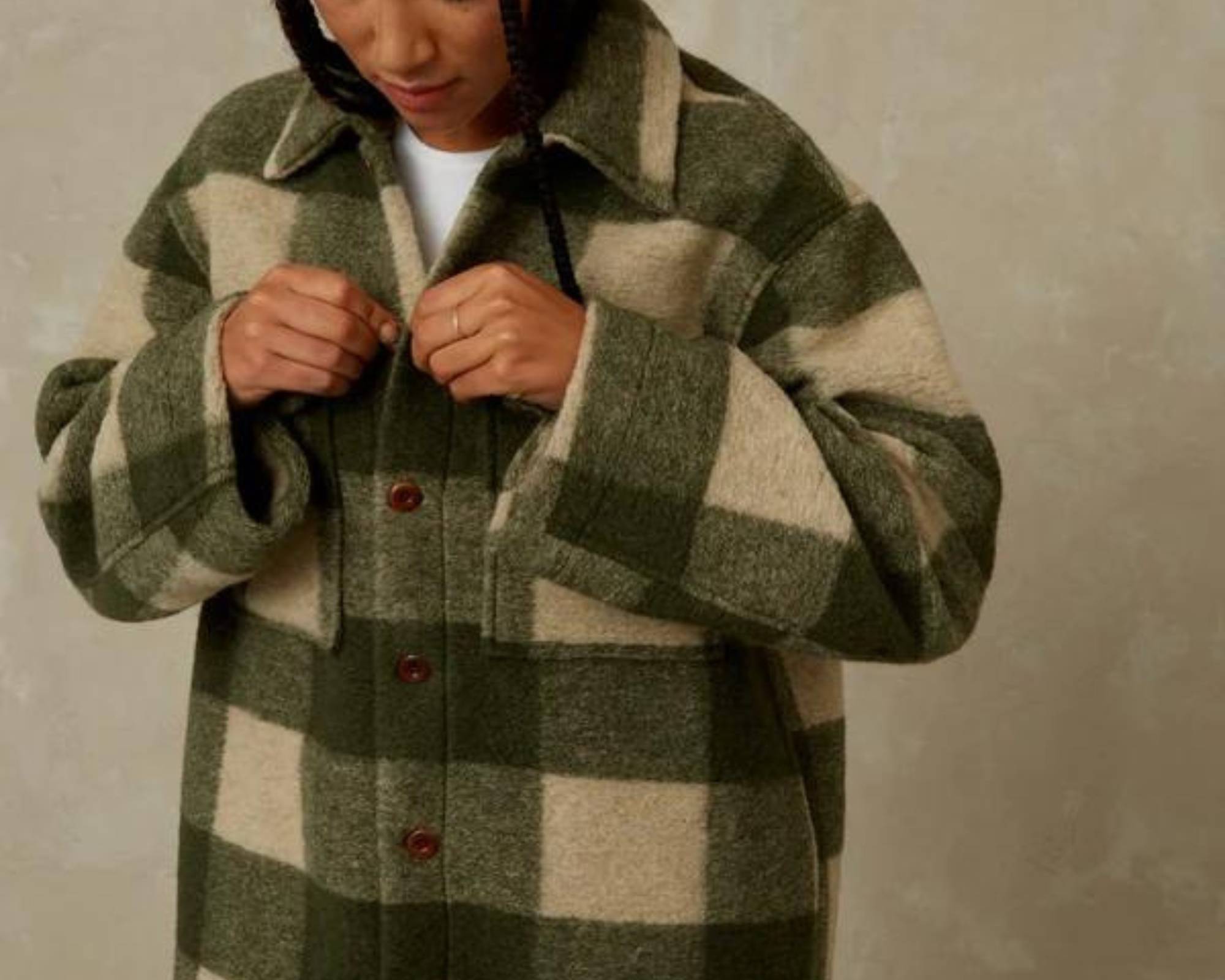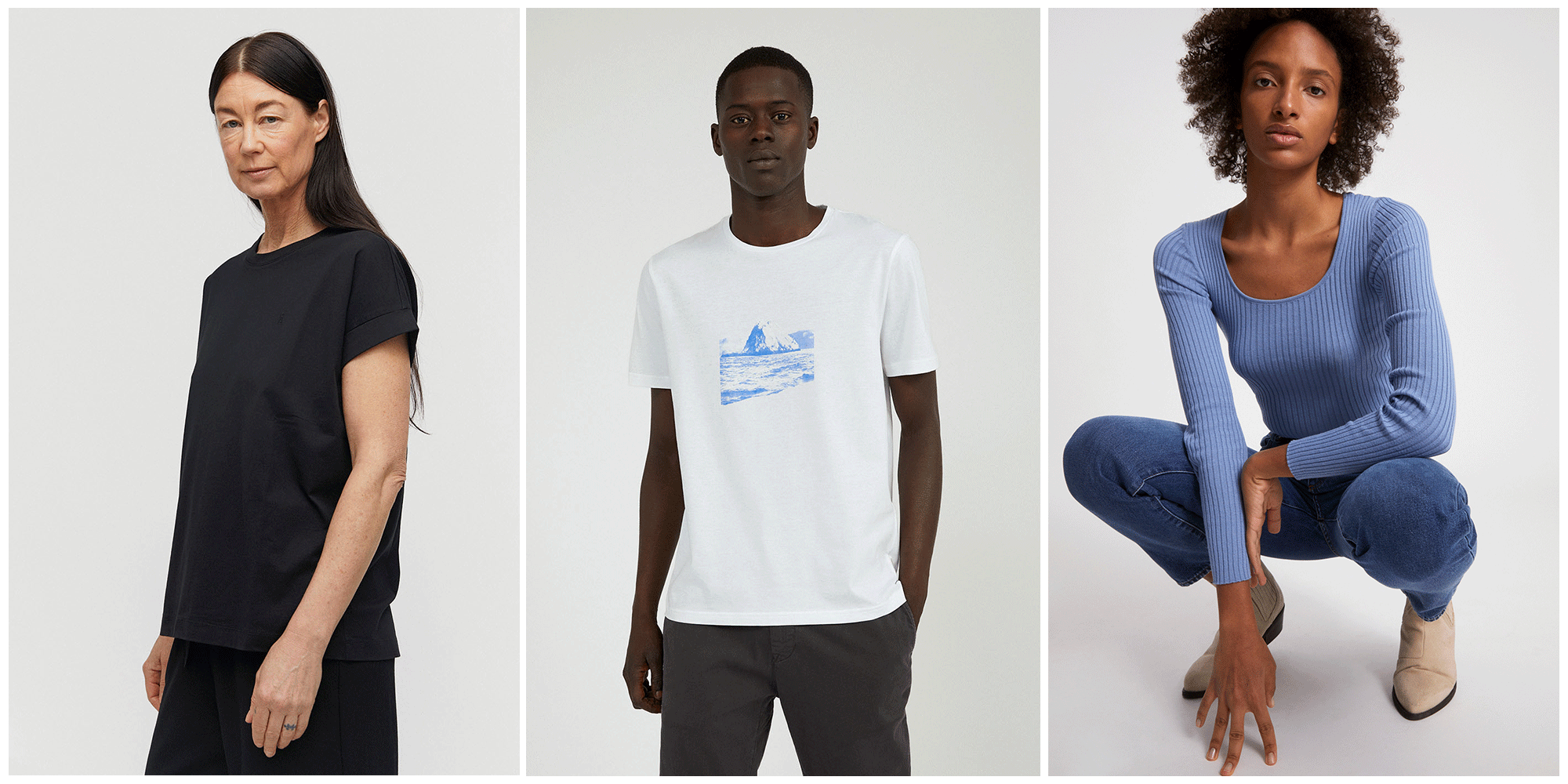Our editors curate highly rated brands that are first assessed by our rigorous ratings system. Buying through our links may earn us a commission—supporting the work we do. Learn more.
With a score of “Not Good Enough”, Primark is clearly not doing, well, enough, to reduce its impact on people, the planet, and animals. Luckily we found some “Good” and “Great” alternatives you can turn to instead.
Primark still has a long way to go
Whenever I think about Primark, I picture the huge queues that form every time the brand opens a new location. I also think of very cheap, petroleum-based Christmas jumpers. Just me?
Primark is a pure fast fashion brand. The Irish chain is known and loved worldwide for its range of on-trend clothing, footwear, accessories, and homewares for men, women, and children at very, very, very low prices. So what’s the cost of Primark’s fast fashion model on the planet, people, and animals? And what better alternatives to Primark are there?
Primark has taken a few steps in the right direction by signing the Bangladesh Accord and Cotton Pledge, and adopting the ETI Code of Conduct. These actions are commendable—but the brand still has a long way to go. Primark needs to use more lower-impact materials in its products, set specific reduction targets in terms of greenhouse gas emissions and wastewater, and ensure its workers are treated fairly, including paying them a living wage and providing safe and healthy working conditions.

Overall, we rate Primark “Not Good Enough“. Primark’s business model is based on creating vast amounts of short-lived, poorly-made fast fashion products, which inherently contradicts the values of ethical fashion and is ultimately bad news for the planet, people, and animals.
This is especially concerning as Primark has seen a surge in popularity in recent years, and the brand has embarked on an ambitious expansion plan, particularly in the United States. It’s important to acknowledge that the fast fashion industry, which Primark is a part of, has a substantial and adverse impact on the people working within its supply chain. And this sector has, on the whole, shown little commitment to addressing these critical issues. Unfortunately, Primark, with its “Not Good Enough” rating for its impact on people, is no exception.
So, while Primark’s low prices may be appealing, it’s crucial to recognise the broader consequences of the fast fashion model on both the environment and those involved in the production process. That’s why we recommend exploring alternative options that align more closely with your values.
If you want to ditch the poorly-made, cheap, and harmful clothes and give Primark a miss, we found brands similar to Primark that are making a solid effort across the board for sustainability and ethics. Keep reading to discover “Good” and “Great” alternatives to Primark.
Top rated alternatives to Primark you’ll love
Keep reading to discover “Good” and “Great” alternatives to Primark. But we recognise that many of these better brands might appear more expensive up front. That’s because more goes into a price tag than the cost of fabric. Fast fashion prices are often low because brands don’t pay workers living wages or follow many responsible practices in production.
Fast fashion has also distorted our view of clothing prices. We now spend much less per garment and buy far more low-quality clothing than we did only a few decades ago. When taking into account cost per wear, it ends up costing less in the long run to invest in higher-quality items you’ll wear again and again.
Good On You wants to help you find more sustainable options no matter your budget. We aim to highlight the range of better, more affordable brands, but we also encourage you to seek out the most sustainable options that work for you. Sometimes this means shopping second hand, other times rediscovering and restyling what you already own.






























